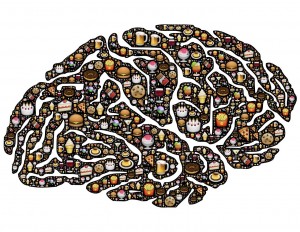
Compulsions

Compulsions treated with Hypnotherapy in Weybridge
Hypnotherapy for Compulsions in Weybridge
Understanding Compulsions
As a rule of thumb, a compulsion is one that is undertaken, often with little thought, on impulse or with a sense of having been ‘driven’ to it, and instant relief is felt.
There may be some feelings of guilt or shame felt afterwards, but immediate gratification is felt at the time.
With obsessive thoughts and behaviours which may often be mistaken for compulsion, this sense of relief is often never achieved.
The person is likely to focus excessively on the issue at hand, often becoming totally preoccupied by it; they can find themselves involved in repetitive cycles of behaviour which provide little or no relief, and sometimes activities are carried out to ensure something else (often something bad) does not happen.
(For more info on obsessive behaviours and disorders click here.)
[separator title=”” icon=”arrow-down” color=”orange” top=””][/separator]
The types of compulsions that may be helped with Hypnotherapy
Compulsions can range from simple everyday behaviours such as shopping to more reckless behaviours such as self-harming.
One of the issues with compulsions is that most of them undertaken to excess can have very damaging impacts on people’s lives: the compulsive shopper may find themselves heavily in debt or even bankrupt, while the compulsive self-harmer may place their life in jeopardy on a regular basis.
The following list is not exhaustive, but covers the more common compulsive behaviours that we are consulted for:
- Excessive shopping
- Excessive drinking
- Addictive behaviour (e.g. gambling, misusing drugs or other substances, eating disorders such as bulimia)
- Sexual behaviours (e.g. having numerous sexual partners, having regular unprotected sex)
- Lying and/or cheating
- Nail biting
- Self-harming
- Hair twiddling and/or pulling (known as trichotillomania)
- Smoking (For more info on quit smoking with hypnosis click here.)
Please do not be put off if your particular issue has not been identified in the list above: compulsions are so varied and often specific to the individual that it would be impossible to list them all here.
What is important to realise is that it is the underling reasons for the behaviour that is significant and it is this that is treated with hypnotherapy, rather than the precise behaviours themselves.
[separator title=”” icon=”arrow-down” color=”orange” top=””][/separator]
How Hypnosis and Hypnotherapy Could Help Your Compulsions
Many people who have compulsions and compulsive behaviours find themselves feeling a little out of control or driven by factors they can not understand.
Sometimes people may feel a little ashamed or guilty about their compulsive behaviours and therefore avoid seeking help.
We offer two main types of therapy for Compulsions:
1) Cognitive Integration & Processing Therapy –
This form of therapy is designed to help you put past experiences into the correct context, and to then “re-process” those experiences so that they are integrated properly in your mind.
This re-processing can help you break the automatic behavioural patterns that lead to the emotional experiences you might suffer in the present day.
2) The Thrive Programme –
Cognitive Training programs can help you to identify and then modify “limiting Beliefs” that can keep you “trapped” in old ways of feeling and thinking.
By doing so, you will be able to make significant improvements to the way you feel about yourself (your self-esteem) and also the degree to which you might worry about what others think of you.
[separator title=”” icon=”arrow-up” color=”orange” top=”Back To Top”][/separator]
[message type=”info”]Call Me To Arrange A FREE Initial Consultation on 07460-802165[/message]
